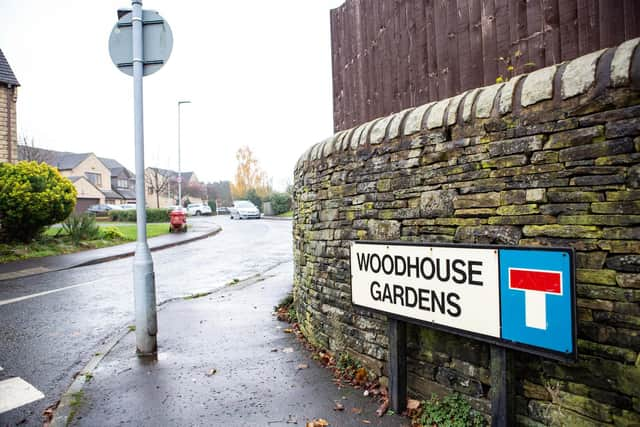Row over controversial Brighouse housing sites and legality over funding infrastructure
and live on Freeview channel 276
Both Clifton Village Neighbourhood Forum and Calderdale Council have made submissions to Planning Inspector Katie Child on the issue, as part of the examination of Calderdale’s draft Local Plan.
Ms Child, who has been appointed by the Government, will determine whether the plan, which will shape where around 9,700 might be built into the early 2030s, is sound and should be implemented.
Advertisement
Hide AdAdvertisement
Hide AdThe neighbourhood forum raised the issue in January at the last hearing session held before the Inspector approves the plan, rejects it or requires changes to be made.


It relates to the council’s proposals as to how infrastructure to serve two planned Garden Suburbs at Woodhouse and Thornhills, both near Brighouse, which could see more than 3,000 new homes, would be funded.
The forum consider the council’s proposal of a “roof tax” as a way of recovering costs from public sector forward-funding site specific infrastructure in the expectation costs will be repaid as development proceeds, to be illegal.
The forum’s statement, drawn up by NJL Consulting for the forum, says: “The Forum consider the proposed roof tax to be unlawful as it comprises a de facto local land tax outside of the power contained in Section 106 of the Town and Country Planning Act 1990.”
Advertisement
Hide AdAdvertisement
Hide AdHowever, the council rejects this assertion and says the vehicle for securing the necessary finance to deliver infrastructure in a “timely and appropriate” manner will be through using Section 106 agreements, which can be used by councils to pay for costs on some infrastructure items.
Calderdale argues these provisions are not required to be elided with a planning application and so a landowner can bind his landownership with a planning application whether there is an application submitted or not, and they also allow for sums of money to be paid to a local authority.
The forum argues taxation to enable either local or national Government to recover the cost of monies which have been expended would require primary legislation.
“If the roof tax falls away, the Garden Suburbs are inviable based on the council’s own evidence as CC is already having to fund the sites,” says the forum’s submission.
Advertisement
Hide AdAdvertisement
Hide AdThe forum says the council has relied on Leeds City Council’s use of a roof tax to recover costs of a highway but claims there are differences between the cases, and have cited a Supreme Court ruling in a case involving Aberdeen Council as evidence a “generalised” roof tax cannot lawfully be imposed.
If the roof tax option were omitted, there would be two potential funding outcomes – that the council would be left to fund infrastructure for a private development site, or promoters of homes schemes at the garden suburb sites would have to deliver it all, which the forum believes there is no evidence they would do this.
But Calderdale says the Aberdeen case did not find pooling arrangements were inherently unlawful even where the contributing development was prospective.
The council’s response says: “A ‘roof tax’ or ‘pooling scheme’ will be lawful where there is a clear link between the development and the infrastructure which is to be funded.”
Advertisement
Hide AdAdvertisement
Hide AdThe infrastructure in question is not to address borough-wide needs but the specific infrastructure needs of the Garden Suburbs, says the council, arguing this is self-evident because different rates are being set for the two Garden Suburbs.
Calderdale’s statement goes on: “There are numerous examples of Garden Suburb developments being promoted throughout the country that require some element of ‘up front’ public funding”, arguing the Leeds example is one such.
The council says further: “There is an implicit suggestion in the Clifton Village Neighbourhood Forum (statement) that the council would deliver the ‘up front’ infrastructure without any commitment whatsoever from the landowners/developers to being forward the residential and other development.
“I that is the CVNF case, then it is patently absurd.”
The council’s responses have not alleviated the forum’s concerns, it says, claiming the authority’s response does not explain how a ‘roof tax’ will be fairly and reasonably related to the scale of developments and its impacts.
Advertisement
Hide AdAdvertisement
Hide AdNeither is it explained how Section 106 agreements will be reached, especially in the case of Thornhills where, says CVNF, there is still no agreement in place between rival groups of landowners.
* Support your Halifax Courier by becoming a digital subscriber. You will see 70 per cent fewer ads on stories, meaning faster load times and an overall enhanced user experience. Click here to subscribe